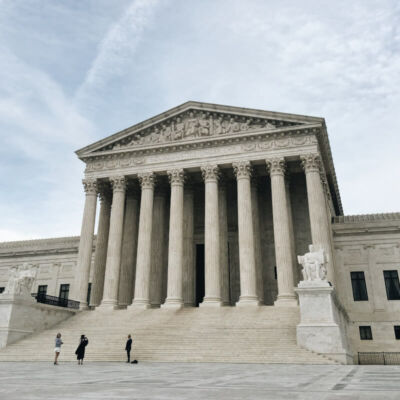Appealing A Guilty DUI Verdict
The process of appealing a DUI trial verdict is complex and fraught with strict deadlines and nuanced legal principles. An experienced DUI appeal lawyer can guide you through the appeals process. Below are ways in which hiring a DUI appeal attorney can assist you in appealing a DUI verdict.
A DUI appeal represents a challenging and complex stage of the criminal justice process. The expertise of a DUI lawyer can be instrumental in successfully appealing a DUI conviction.

The DUI Appeals Process
If you have received a DUI conviction, you typically proceed to appeal the verdict. You might ask, how do I appeal a DUI verdict? Hiring a specialized DUI appeal lawyer is your best option. They will know how to navigate the court of appeals and file your DUI appeal quickly and effectively.
A skilled lawyer for DUI appeals carefully examines your DUI charge. They also review court records, police evidence, and legal procedures from your original trial. This can help them to identify grounds for filing an appeal.
A skilled lawyer can find mistakes in criminal cases and use them to challenge the decision.
Procedure for Filing a DUI Appeal
Filing a Notice of Appeal is the first step to starting the appeal process with the court of appeals. You must file this within 30 days of the conviction or sentencing in the district court where the case was tried. Missing this deadline can result in forfeiture of the right to appeal.
The person appealing must also say which parts of the lower court’s records should go to the higher court for review. This typically includes transcripts of proceedings, evidence submitted, and rulings made.
Courts usually require a filing fee for appeals, the amount of which varies by jurisdiction. If the appellant cannot afford a lawyer, they may request court-appointed free legal counsel. However, experts generally advise hiring an experienced DUI appellate lawyer due to the technicalities involved.
Next Steps in the DUI Appeals Process
After preparing and certifying the record, both parties need to submit their appellate briefs. These documents summarize the facts, enumerate the legal issues raised, and provide arguments based on statutory law and previous court decisions. The appellant’s brief aims to demonstrate legal or procedural errors that affected the outcome of the initial trial.
Sometimes, outside parties who value the result can submit “friend of the court” or amicus curiae briefs. Once the attorneys submit and review the briefs, the appellate court may schedule a session for oral arguments. Lawyers for both sides will summarize their positions and respond to questions posed by the appellate judges.
DUI Appeal Deliberation
After the oral arguments, the judges will deliberate on the matter. They may examine whether the trial court made legal errors significant enough to warrant a reversal of the verdict.
If the appellant is dissatisfied with the decision of the higher court, they have the option to seek a review. Either a higher court or the state’s Supreme Court can do this. However, it is important to note that there are certain conditions and limits that apply in such cases.
The Benefits of Appealing A DUI Verdict
The DUI appeals process is a complex but potentially rewarding pathway for challenging a DUI conviction. Specialized legal representation is often essential for identifying appealable issues and making persuasive arguments.
Although success does not come with a guarantee, you can still gain numerous benefits. These include the ability to correct errors, make sentences shorter, and improve your reputation.
Individual Benefits of DUI Appeals
One of the most critical benefits is the opportunity to correct legal or factual errors made during the original trial. This may involve improperly admitting evidence, the jury engaging in misconduct, or counsel providing ineffective assistance. Successful appeals can result in a new trial. This new trial provides the appellant with another chance to prove their innocence or negotiate a better plea deal.
A successful appeal can bring back civil rights like driving and have a big impact on jobs and social status. The appellate court might not only reverse a conviction but could also modify an existing sentence. This can occur if the original DUI conviction relied on incorrect legal standards.
Winning a DUI appeal can prevent a permanent criminal record and have positive effects on job prospects, housing, and overall life.
Societal Benefits of DUI Appeals
Famous DUI appeals can bring attention to problems in DUI laws, leading to discussions and possible changes in the law. An appeal can review the legal theories and principles used in the original case, which may result in a better outcome.
Successful appeals can set legal precedents, thereby influencing future cases and potentially contributing to legal reform. Appealing can improve the legal system’s handling of DUI cases. This improvement might also affect how we deal with similar cases in the future.
Do I Need A Lawyer to Appeal My DUI Conviction?
The DUI appeals process is complex and requires careful preparation, attention to detail, and expert legal guidance. Although the process is arduous and offers no guarantee of success, the potential benefits—both direct and indirect—are significant. These benefits range from legal repair and sentence leniency to broader impacts on legal precedent and public policy. An experienced DUI appeals attorney plays a crucial role, considering the complexities involved.
More DUI Appeals Resources
If you’d like to learn more about the DUI appeals process, read through some of our informative articles below. We convert the ins and outs of DUI appeals and dive into some complicated questions on the matter.
Find The Top-Rated DUI Appeal Lawyers Near You
We have listings for the top DUI appeals lawyers in all 50 states and the District of Columbia. Find the best DUI appeal attorney for you by clicking on your state here.




